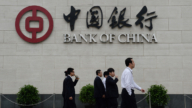【新唐人2011年12月13日訊】11號落幕的聯合國德班氣候大會,最終達成一份協議,決定延長《京都議定書》的有效期。在最後階段,中國代表團團長解振華因為與歐盟意見不一致,而情緒激動、失態發火,聲稱:你們有甚麼資格給我講道理?下面請看本臺記者的報導。
這場在南非海邊城市德班召開的聯合國氣候大會,原定9號結束,但因為與會各國對部分議題分歧很大,引發爭論,會議被迫延長。
1997年制定的《京都議定書》,將在明年到期,由於《京都議定書》存在嚴重缺陷,沒有對污染嚴重的發展中國家做出減排限制,也和目前全球經濟格局不符。因此,歐盟提出一份新的減排路線圖,計劃在2015年前完成,希望發展中國家能夠承擔相應責任。
這一提議讓中國代表團團長、國家發改委副主任解振華大為光火。而解振華的發火,卻也不是第一次。在前年(2009年)的哥本哈根聯合國氣候大會上,解振華就曾經惱火的說:你有甚麼資格來跟我談?
大陸官網曾經發表文章「環境污染事故頻發 中國人該向誰發火」。解振華發火,不禁引人思考,那些深受環境污染之害的大陸老百姓該去向誰發火呢?
多年來,大陸當局希望通過發展經濟保穩定、維持統治,為GDP,不顧老百姓的人身安全和生態保護,造成極其嚴重的環境污染。 《財經國家週刊》報導,僅長江沿岸就有40多萬家重污染企業。 2007年沿岸廢水排放量達300億噸,相當於每年有一條黃河水量的污水排入長江。
沿岸居民受到「怪味」、「惡臭」的襲擊,出現各類疾病。江蘇常州春江鎮新華村共有6000人,從2004到2008年,身患各種癌症的就有近200人,遠高於正常人群。而這樣的「癌症村」現在已經遍及全中國。
著名環保志願者胡佳對《新唐人》指出,中國採用的環保標準很低,比如,美國實行空氣懸浮微粒PM2.5的污染標準,而大陸則是PM10。他認為,大陸人口眾多、能源稀少,實際上最需要節能減排。
胡佳:「國際社會許多其他國家實施的較為嚴格的,對於我們這樣高能耗、高污染的生活和生產方式,有借鑒價值的那些標準,我們現在還沒有積極的去採納、實施。」
《中國新聞網》報導,中國已經成為全球最大的溫室氣體排放國。大陸氣候談判專家何建坤表示,2010年中國的能源消費佔全球比重為20%﹔而二氧化碳排放量佔全球比重高達23%。為此,美、歐等發達國家要求中國加入全球減排協議,共同承擔責任。
胡佳:「我們的『萬元能耗』,是美國、尤其是日本的5、6倍,我們實在是還有很大的潛力可挖。我們應該跟國際是接軌的,而不是抱殘守缺的、非得要一個緩存立限的這樣一個寬限期。我們可以盡量縮短這個寬限期,變壓力為動力,讓這個國家的國民能更早的享受到高能而低耗的能源配給、一種工業結構。」
《德國之聲》中文網報導,德班大會194個國家最後達成協議,決定讓《京都議定書》進入「第二承諾期」。相對於早就已經接受減排任務的發達國家,中國和印度等發展中國家要到2017年、最遲2020年才會有減排任務。
新唐人記者劉惠、李謙、李月採訪報導。
Durban: Chinese Member Angry Again
On December 11, the UN Climate Conference in Durban
has ended.
An agreement was finally reached,
deciding to extend the validation of “Kyoto Protocol."
In the final stage, Xie Zhenhua, the Chinese delegation head,
got emotionally agitated due to disagreement with the EU.
He said: “What qualifications do you have to talk about
reasons with me?” Here is more from our correspondents.
UN’s Climate Conference held in the seaside city of Durban,
South Africa, was scheduled to end on December 9.
However, there were big differences in opinions
on some issues among the participating countries.
The conference was forced to extend,
because of some controversies.
The “Kyoto Protocol" enacted in 1997 will expire
in the next year.
It has some serious flaws, like emission restrictions
for seriously polluted developing countries.
Plus, it doesn’t reflect the current global
economic situation.
Therefore, the EU proposed a new method for emission
reduction, planning to be completed by 2015.
And it hopes the developing countries
will take responsibility for the relevant duties.
The proposal angered Xie Zhenghua, Chinese delegation head and
deputy director of Chinese NDRC (National Development and Reform Commission).
Xie Zhenghua’s anger is not something new.
In the Copenhagen UN Climate Conference in 2009, Xie got
known for the words: “What makes you qualified to talk with me?”
Mainland’s official website has published an article,
“Environmental pollution accidents happen frequently, whom should the Chinese people is angry at?”
Xie’s anger made people think: who should those suffering
seriously from the environmental pollution be angry at?
Chinese authorities are focused on maintaining stability
and ruling by economic development.
They ignore people’s personal safety and ecological
protection, this leading to severe environmental pollution.
“National Financial Weekly" reported only along Yangtze River,
there are over 400 thousand enterprises of serious pollution.
The wastewater discharge along the river totals 30 billion tons,
equivalent to the annual water volume of the Yellow River.
The residents along the river are subjected to strange smells,
stenches and pollutants, causing variety of diseases.
There are 6000 residents in Xinhua Village, Chunjiang Town,
Changzhou, Jiangsu.
From 2004 to 2008, nearly 200 of them suffered from various
cancers, which is far higher than that of a normal population.
These kinds of “cancer villages” now exist throughout China.
Hu Jia, a renowned environmental protection volunteer,
said to NTD, China’s environmental standards are very low.
For example, the air pollution standard for suspended particles
in America is PM2.5. However, in mainland China is PM10.
He thinks there is a huge population and energy scarcity
in mainland China.
In fact, China urgently needs to take actions
about energy conservation and emission reduction.
Hu Jia: “Many other countries in the international community
implement these more stringently.
For us, living and producing at such high energy consumption
and high pollution rates, those standards are worth referencing.
However, we are not active in adopting
and implementing them as yet.”
“China News" reported that the mainland has become
the largest country of greenhouse gas emission in the world.
He Jiankun, China’s climate negotiator, said that in 2010,
China’s share of global energy consumption accounts for 20%.
While the proportion of total global carbon dioxide emission
accounts for up to 23%.
Thus the US, EU and other developed countries ask China
to join the global emission reduction agreement, and share the responsibilities.
Hu Jia: “Our energy consumption per RMB 10 thousand
is 5 to 6 times that of America or Japan.
We really have great potential to be tapped.
We should consider the international standards, rather than
being conservative, with a long period of buffering.
We should try our best to shorten this buffering period,
turning the pressure into motivation.
It will make the people in this country enjoy an energy supply
with high efficiency, low consumption, and industrial structure.”
Deutsche Welle in Chinese reported, the 194 countries
in Durban finally reached an agreement.
They deciding to extend the “Kyoto Protocol"
for a “second commitment period."
Compared to developed countries that already accept duties
of emission reduction,
countries like China and India will not have emission
reduction duties until 2017, or even 2020.
NTD reporters Liu Hui, Li Qian and Li Yue




























